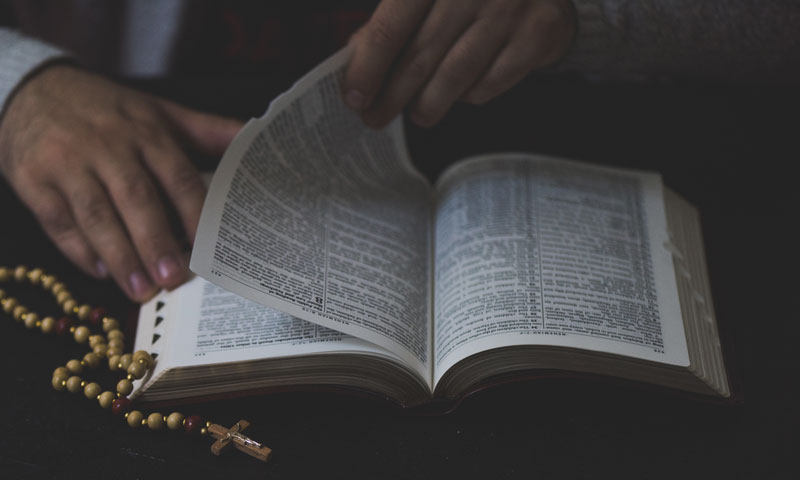In recent years, Heather and I have been praying and discussing the amazing things that the Lord has done in our lives. In Sacred Scripture, Psalm 136 is a tremendous example of recounting the deeds of the Lord and giving thanks to Him. The Psalm is in the form a litany of thanksgiving for specific deeds of the Lord beginning with creation, the miraculous events of the Exodus, the defeat of mighty kings by the Israelites, and finally the entrance into the Promised Land.
Because giving testimonies is a unique and important aspect of the Image of God Institute, this psalm also takes on a special meaning for us. When witnesses are preparing to give a testimony and delivering it to others, we remember the great things that the Lord has done in our lives. This is so important because we are fallen human beings, and we tend to forget what the Lord has done. The Israelites forgot the miraculous deeds of the Exodus and complained during their journey toward the Promised Land; at times they even wanted to return to Egypt! Our memories are no better than the ancient Israelites. We can complain so often, despite the massive graces we have received. Memory is critical for our spiritual lives. In times of darkness, Psalm 136 is a light that reminds us of the Lord’s goodness and how he is working, even in the difficult trials.
Pope Benedict XVI delivered a powerful Wednesday Audience on this psalm, and he said the following:
“A solemn prayer of thanksgiving, known as the “Great Hallel”, this Psalm is traditionally sung at the end of the Jewish Passover meal and was probably also prayed by Jesus at the Last Supper celebrated with his disciples. In fact, the annotation of the Evangelists, “and when they had sung a hymn, they went out to the Mount of Olives” (cf. Mt 26:30; Mk 14:26), would seem to allude to it. The horizon of praise thus appears to illumine the difficult path to Golgotha … The basic structure is that Israel remembers the Lord’s goodness. In this history dark valleys, arduous journeys and death succeed one another but Israel recalls that God was good and can survive in this dark valley, in this valley of death, because it remembers. It remembers the Lord’s goodness and his power; his mercy is effective for ever. And this is also important for us: to remember the Lord’s goodness. Memory strongly sustains hope. Memory tells us: God exists, God is good, his mercy endures for ever. So it is that memory unfolds, even in the darkest day or time, showing the way towards the future. It represents ‘great lights’ and is our guiding star. We too have good memories of the goodness, of God’s merciful love that endures for ever. Israel’s history is a former memory for us, too, of how God revealed himself, how he created a people of his own. Then God became man, one of us: he lived with us, he suffered with us, he died for us. He stays with us in the Sacrament and in the Word. It is a history, a memory of God’s goodness that assures us of his goodness: his love endures for ever. And then, in these 2,000 years of the Church’s history there is always, again and again, the Lord’s goodness. After the dark period of the Nazi and Communist persecution, God set us free, he showed that he is good, that he is powerful, that his mercy endures for ever. And, as in our common, collective history, this memory of God’s goodness is present, it helps us and becomes for us a star of hope so that each one also has his or her personal story of salvation.”[1]
We have adopted this Psalm in the Image of God Institute and invite you to join us in this beautiful prayer of thanksgiving!
[1] Benedict XVI, General Audience October 19th, 2011. https://www.vatican.va/content/benedict-xvi/en/audiences/2011/documents/hf_ben-xvi_aud_20111019.html

